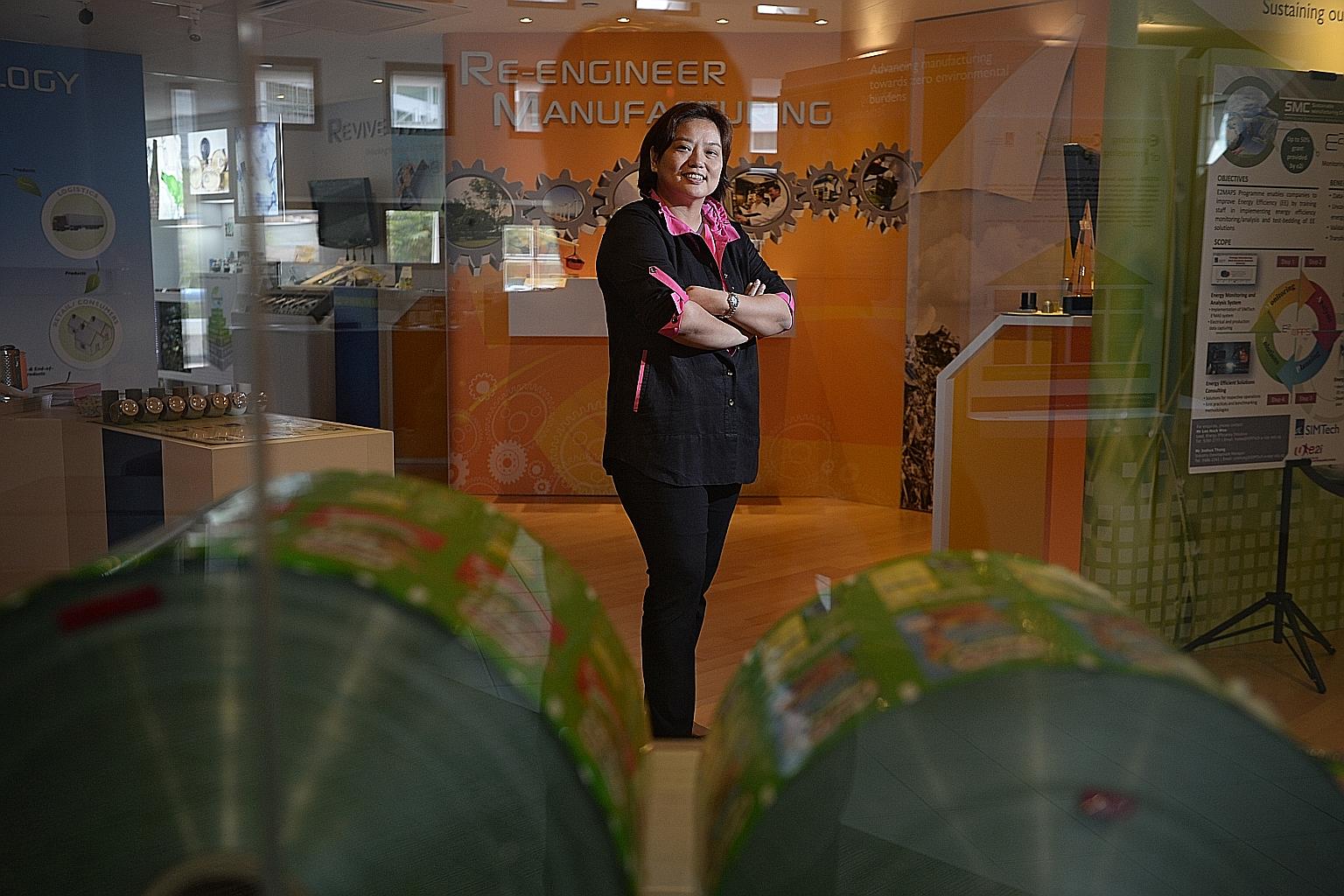Science Faces
Engineering a natural choice for supply chain specialist
Research work spurs creative thinking, says A*Star deputy division director
Sign up now: Get ST's newsletters delivered to your inbox

Dr Tan chose the research path over being a regular engineer as she found the latter repetitive and boring. She is the programme manager of the Manufacturing Control Tower, which analyses real-time data to make better decisions in the manufacturing process.
ST PHOTO: MARK CHEONG
In her childhood, she would watch her brother take apart his bicycle into "1,001 pieces" and put it together again.
"That set the background for my interest in engineering. It came naturally to me," said Dr Tan Puay Siew, deputy division director of the Manufacturing Systems Division and programme manager of the Manufacturing Control Tower at A*Star's Singapore Institute of Manufacturing Technology.
The Manufacturing Control Tower (MCT) is an IT set-up that collects and analyses real-time data to make better decisions in the manufacturing process.
She is a specialist in how manufacturing supply chains can be disrupted in unexpected ways.
For example, the 2011 Fukushima earthquake in Japan forced carmakers around the world to reduce the production of cars in certain colours.
The only factory in the world producing the paint essential for making those colours had been evacuated as it was near the Fukushima nuclear plant.
Dr Tan uses computer simulations to predict the effects of large disruptions on supply chains.
These simulation models are useful for risk management, but it has been hard to verify their ability to make accurate real-world predictions since large-scale disruptions are rare and data on them is hard to come by.
To overcome this limitation, she is working with multinational corporations to get more data as these companies have a global scope.
Another way to get around the problem is to scale down the model to a local production line within a factory, rather than a large supply chain involving different companies.
Disruptions to the local production line happen more often and are easier to measure.
Research like this offers ample opportunity for creative thinking, for which Dr Tan is grateful.
After graduation from the National University of Singapore in 1991, she started work as a regular engineer but realised that the repetitive work bored her.
"I needed to be taking on new challenges, that's what keeps me going," she said. "A career in research isn't glamorous, but to me it's fun."
Dr Tan concedes that career progression naturally requires a researcher to take on more administrative tasks, but she has found a balance between the two.
"I settle for doing research management and inspiring the younger ones," she said, adding that she continues to supervise doctoral students at Nanyang Technological University.
Dr Tan, born in Malaysia, came to Singapore to attend university and has lived here since.
She has a daughter, and her husband works at the Ministry of Defence.
She became a Singapore citizen in 2013, and has taken on the challenge of improving the MCT since development started last year.
She added: "My hope for MCT is that it will go beyond the shores of Singapore and be a recognised niche player in next-generation manufacturing."


